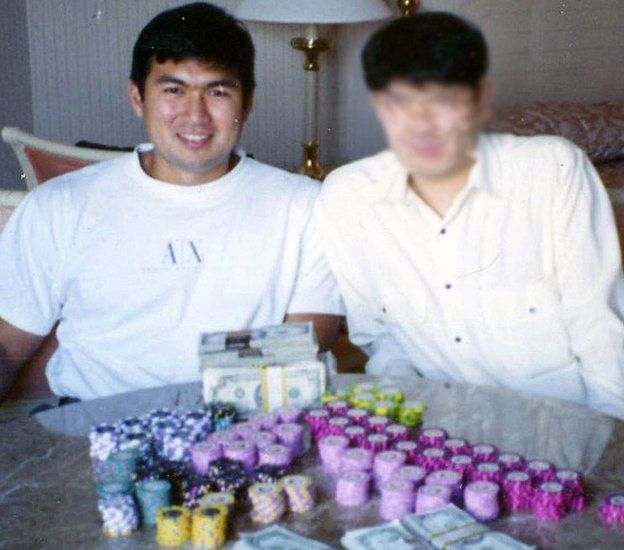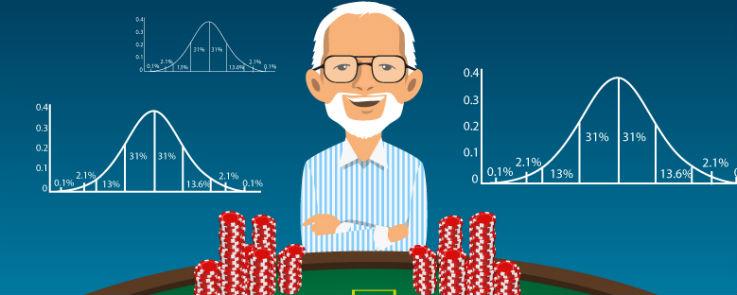How A Team Of Students Beat The Casinos
When it comes to gambling, everyone knows the casino always comes out on top – right? But in the 1990s a group of students proved the punter didn’t have to be the loser. This is the story of the MIT Blackjack Team. Bill Kaplan laughs, remembering his mother’s reaction when he told her he was postponing his entrance to Harvard to make his fortune at gambling. “Oh my God, this is ridiculous! What am I going to tell my friends?” she said. Kaplan had read a book about card counting and believed he could use a mathematical model to make good money from blackjack. It was certainly not his mother’s dream for her straight-A student son. But Kaplan’s stepfather was more open to the idea and threw down a challenge. “Play me every night and prove you can win,” he said. “I crushed him for 2 weeks straight,” recalls Kaplan. “He told my mother ‘I can’t believe this but he can really win at this game – just let him go.’ So my mother wasn’t wild about it but I went to Vegas and I spent a year there.” That was in 1977 – Kaplan took $1,000 (£600) and within nine months had turned it into about $35,000 (£20,000). He went on to graduate from Harvard and over the years kept playing blackjack around the world. Image copyrightBILL KAPLAN His life took a dramatic turn when the leader of a small group of students from the Massachusetts Institute of Technology (MIT) who had dabbled with card counting overheard him discussing his Vegas exploits. They asked him to train and manage what would later become known as the infamous MIT Blackjack Team. In 1992, with the gambling industry booming and new mega-casinos springing up, Kaplan and his partners saw an opportunity for them to go mega as well. Friends and partners who had previously seen 100% returns on smaller investments, stumped up a startling $1 million to fund a new company, Strategic Investments, which would train bright students to card count and gamble – and then unleash them on the unsuspecting casinos. One of these students was Mike Aponte, then a 22-year-old who was unsure what he wanted to do with his life. After perfecting the technique in empty classrooms, he was shocked to be handed $40,000 (£24,000) in cash to gamble on behalf of the team. He was even more shocked to lose $10,000 (£6,000) of it in his very first ten minutes at a blackjack table in Atlantic City. “An executive casino host came over right away and greeted me and took me up to a penthouse suite. It had a jacuzzi, pool table – it was amazing. I was in awe of the room but I didn’t enjoy it as much as I would normally have, because I was still upset about losing all that money.” It was a lesson in just how volatile blackjack could be – even with a scientifically proven system. But he continued to rely on the team’s method that weekend and was, in the end, able to return to college with a net […]
Read moreHow to beat the casino – legally
If there’s one thing everybody knows about gambling it’s that the house always wins. And while it is true that casinos always make a profit, there are a number of ways to cheat the system – some of which are actually perfectly legal. Half a century ago, mathematician Edward Thorp published a groundbreaking book outlining how a player could use “card counting” to get an advantage in the game Blackjack by keeping track of the cards left in a deck. Ever since, casinos have been trying to eradicate card counting while card counters are getting increasingly skilled at not getting caught. So is it possible to outplay casinos today? And what will it be like in the future? Winning Blackjack Hand. Wikipedia Commons Casinos are businesses and operate by building in a margin – often referred to as the house edge. If you play roulette and bet on a single number you will be paid at odds of 35-1 when the true odds are 36-1 in Europe and 37-1 in the US. The fact that you are receiving less than the true odds is the house edge and explains why casinos make money in the long term. Of course, some people have to win, otherwise casinos would cease to exist. Advantage players What casinos don’t like are “advantage players” – people seeking to have an edge over the house. Sometimes this involves cheating and/or illegal activities ranging from past posting (making a bet after the time when no more bets are to be taken) to collaborating at the poker table and using a computer to help make decisions. Card counting, however, is legal. In Blackjack, the aim of the player is to achieve a hand of cards whose points add up nearer to 21 than the dealer’s hand, but without exceeding 21. Many hands are played from the same deck of cards, so what happens in one hand will influence what happens in future hands. As an example, if a ten has been played from the pack then it cannot appear in the next hand. This is different from other games, such as roulette, where the outcome of one spin has no effect on the next spin. Professor Thorp and his contribution to card counting. Card counting is based on the fact that a large proportion of high cards (such as tens, jacks, queens and kings, which are all worth ten points) left in the unplayed deck statistically improves the player’s chances. This is because a player can decide not to draw a new card to a hand such as 16, but the casino is forced to, as it follows strict rules. If there are a high proportion of high cards left in the unplayed deck of cards, the dealer has more chance of busting (going over 21). This can be combined with “basic strategy” – developed from computer simulations of millions of blackjack hands – which tells the player the best action to take for each possible card combination. Combining card counting and basic strategy can help a player convert the (long term) house edge from 2.7%, in favour […]
Read more


